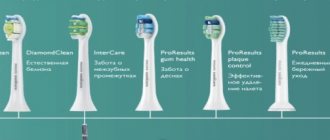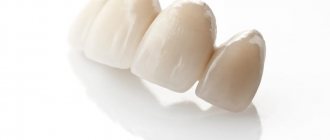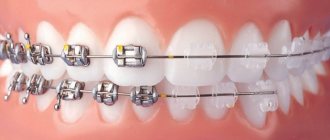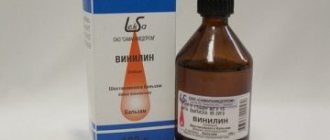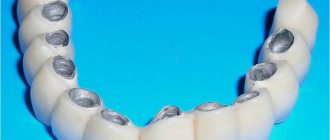Principle of operation
An irrigator is a device for caring for the oral cavity. During its operation, liquid under pressure enters the reservoir. And then the nozzle sets it in the desired direction - to those areas of the oral cavity that we cannot treat with a brush or dental floss. The liquid pulsates, thereby cleaning the teeth, including the spaces between them, the tongue, and the gums. If you use the irrigator for dental care correctly, your hygiene will be of the highest quality.
Experts also approve of the irrigator as a care device for dentures and orthodontic structures.
How to choose the cleaning mode and water pressure
When cleaning your mouth with an irrigator, you should not forget about the correct operating mode. First of all, this is the pressure of the water jet, which is adjusted with a special button or control knob. Even the simplest and cheapest models can work in two versions - strong and weak.
During the initial period of use, the gums may not react correctly to external influences. Therefore, at this stage, the minimum gentle regimen should be used. Gradually, the mucous membrane and the entire cavity will get used to this pressure, and after 1-2 weeks it will completely adapt to it. If there is no discomfort, you can gradually increase the power of the supplied jet.
Strong pressure does not always provide the desired result. If you have hypersensitivity or diseases of the mucous membrane, you should not use the maximum mode to avoid serious injury to the gums. If it is not possible to consult a dentist on this matter, it is recommended to rely on your own feelings.
When to use an irrigator?
One of the most popular questions: how often can you use a waterpik? The answer is simple - every time after brushing your teeth.
But if you are a person who wears braces or has bridge structures, then you should use the irrigator more often - every time after eating. Because food gets stuck and remains in the mouth.
Another important rule is that you need to use the device constantly. And then it will really be the prevention of gum disease and effective hygiene of the entire cavity, which a toothbrush alone cannot provide.
The best plant-based mouth rinses
Forest balm
Mouthwash from the Forest Balm brand is intended for comprehensive maintenance of the oral cavity in a healthy condition. It will not solve serious problems, it is intended mainly for prevention. The product protects against caries and strengthens enamel due to a mineral complex with fluoride. The Russian concern Kalina produces Forest Balsam rinse in 13 versions, not all of them have a purely herbal composition. Some may contain fragrance, an organic solvent, or the antiseptic triclosan. When purchasing, you should pay attention to the components included in the product. Main advantages:
- pronounced effect,
- pleasant taste,
- affordable price.
Minuses:
- the composition is not 100% natural.
MEXIDOL dent Professional
Rinse aid made in Russia. The composition includes: anti-inflammatory component methylhydroxyperidine succinate (or Mexidol), licorice root extract, amino acid complex. Suitable for periodic use, prescribed to prevent the development of inflammatory processes for people prone to developing stomatitis and those who wear removable dentures. Main advantages:
- moisturizes the mucous membrane,
- heals wounds with stomatitis well.
Minuses:
- Recommended only for certain diseases.
What to put in the irrigator?
What to put in the irrigator?
You can fill the irrigator with:
- The clean water we drink;
- Saline solution;
- Balms.
In this case, we use water at room temperature. If you use a irrigator with hot water, the device will quickly break down. And too cold water damages tooth enamel.
We do not recommend using a dental irrigator with herbal decoctions, as deposits form in the device and caring for it becomes difficult. You will have to clean the sediment often.
Dentists advise pouring balms, which have a number of advantages:
- Fight bacteria;
- Helps cope with inflammatory processes;
- Makes your breath fresh;
- Does not leave microparticles;
- Does not form foam or sediment.
Types of solutions
Conventionally, special solutions for the oral cavity are divided into three groups:
- Professional – liquids with a therapeutic effect for inpatient treatment (often high concentration). The drug is prescribed by a doctor for therapy or in the postoperative period.
- Household – for the treatment and prevention of dental diseases at home. The concentration of active components here is lower than that of professional ones; they are used for daily care.
- Homemade - herbal preparations of medicinal plants for the complex treatment of diseases of the oral cavity.
Based on the principle of action, solutions for irrigators are:
- Therapeutic - with fluoride and calcium to strengthen enamel and treat caries.
- Preventive – with beneficial elements for gums and teeth, they prevent possible pathologies, saturate the enamel with minerals, and destroy pathogenic microflora.
- Deodorants - with mint or menthol for everyday care, provide long-lasting fresh breath.
- Disinfectants – with antiseptics that destroy dangerous bacteria and are used to prevent dental diseases.
Which attachments will be useful for you?
Irrigator attachments
- Standard. Suitable for those who do not have any special diseases or installed structures in the mouth. These are nozzles without bristles. They look like bent tubes at an angle, they wash food well and cope with plaque. Typically, manufacturers offer 2 standard attachments in a set;
- Orthodontic. The same bent tubes at an angle, but with bristles. The best option for braces and other similar systems. The liquid paired with bristles cleans the interdental spaces well, removes plaque, and also takes care of braces;
- Periodontal. Needed for periodontal pockets. Thanks to the soft tip, when you use the irrigator to clean your teeth, it does not injure your hypersensitive gums. But such a nozzle cannot be maintained with high pressure, so that the tip does not fly off. The pressure in the nozzle itself is already calculated and high pressure is not needed here;
- Brush attachments for plaque. Accordingly, they help remove plaque on various structures. At the same time, the nozzle is not a replacement for a brush;
- Tongue attachments. They have the shape of a spoon, which allows you to effectively remove plaque from the tongue, cheeks, and palate;
- Brush attachments. That is, it is a toothbrush along with water under pressure. Cleans teeth and other structures well. You can use it every day, but do not replace a regular brush with this attachment;
- Nasal attachments. For cleaning the nasal cavity.
Watch the video from experts on how to choose nozzles for your irrigator.
Where can I buy
Carefully study the composition and expiration date before purchasing.
Professional solutions for irrigators are sold by representatives of pharmaceutical companies, which, as a rule, work exclusively with dental clinics.
Household liquids are freely available. Today, they can be easily purchased in household chemical and hygiene stores, pharmacies, and also in online stores.
When purchasing liquid for an irrigator by any means, you should pay special attention to its expiration date, manufacturer and composition. This will avoid the use of low-quality products that may be produced by illegal companies.
Can I give a waterpik to a child?
Irrigator for children
Yes, children can also use an irrigator. But this needs to be done when there is a parent nearby and with minimal pressure. It is also important that the child has his own brush head, just like a toothbrush.
Before using an oral irrigator, watch our video with your child. This way, the baby will not be afraid of the device and will understand its benefits and operation together with you.
The best rinses for complex therapy of periodontal diseases
Lacalut active
Lacalut active mouth rinse is produced in Germany. It contains sodium fluoride (225 ppm), 0.25% chlorhexidine digluconate, aluminum lactate and does not include ethyl alcohol. An antiseptic (chlorhexidine) fights the development of the infectious process, aluminum lactate has an astringent effect, which eliminates bleeding gums, and sodium fluoride protects teeth from caries. Lakalut asset cannot be used for more than 21 days. Main advantages:
- effective,
- has a good smell and taste.
Minuses:
- To achieve the expected result, you need to take several courses.
Asepta
A Russian rinse that contains two antiseptics (chlorhexidine bigluconate - 0.05%, benzydamine - 0.15%), xylitol. It has a pronounced antibacterial effect and a slight analgesic effect. The drug can be used in the treatment of ulcerative-necrotic and hypertrophic forms of gingivitis (inflammation of the gums). The maximum permissible period of use is 14 days. With prolonged use, it can cause the development of dysbiosis of the oral cavity. Main advantages:
- mint, not very pronounced taste,
- does not contain artificial colors or alcohol,
- pronounced positive effect.
Minuses:
- quickly consumed.
How to clean braces with an irrigator?
An irrigator complete with special attachments is the best device for caring for the orthodontic system. While wearing braces, it is correct to use the irrigator for cleaning as follows:
- Start brushing with the last teeth in the row;
- Take care of each brace separately, and clean the clasps and other parts of the system that are close to the teeth especially carefully;
- Finish the procedure with care between the teeth and gums.
And at the end, rinse your mouth with a balm-rinse or an antiseptic solution, since while wearing the systems, your lips and cheeks are usually inflamed.
Watch the video on how to clean braces with an irrigator and more. Do it correctly and regularly!
The best anti-caries mouth rinses
President Classic Plus
The rinse contains sodium fluoride (250 ppm), xylitol and plant components (extracts of lemon balm, sage and chamomile). Protects tooth enamel from damage by caries and has a pronounced refreshing effect. It does not contain antiseptics or alcohol, so it is approved for use in children over 6 years of age and people whose profession involves driving vehicles.
Main advantages:
- pleasant aroma,
- soft taste,
- long lasting breath freshening.
Rules for caring for the device
The irrigator, like all electrical appliances, requires special care. The device should be washed as follows: firstly, do not under any circumstances immerse the entire irrigator in water, especially when it is turned on - it may short out (which is deadly!), and its parts may rust. Secondly, do not use unboiled water to clean the device, only filtered and, preferably, warm water. Otherwise, scale will form inside the mechanism, which will lead to its breakdown. In order to thoroughly clean the irrigator, you need to fill it exactly halfway with warm water, empty the reservoir after a couple of minutes, rinse the device and nozzles for the irrigator, and then wipe all components dry. Particularly advanced manufacturers produce devices together with a UV sanitizer designed to disinfect replaceable attachments. The ultraviolet radiation on which it works destroys microbes accumulated on the tips and thus prevents the development of dental diseases. As for the storage conditions of the irrigator, it should be kept in a dry place. Touching the appliance plug with wet hands is strictly prohibited.
In principle, the irrigator should not be cleaned too often, except for those cases when you pour special decoctions into its tank. Particles of herbs from the infusion remain inside the device and may damage its operation.
Multifunctional irrigator OR 820M Donfeel with nasal attachment
The best mouth rinses for hyperesthesia (increased sensitivity) of teeth
Lacalut sensitive
The German LACALUT sensitive mouth rinse is a prime example of excellent quality at a reasonable price. Reduces the sensitivity of enamel to hot and cold, sweet and sour. Protects sensitive teeth from caries, strengthens gums. In addition to amino fluoride, the drug contains aluminum lactate with a pronounced astringent effect and an antiseptic, which requires use for no more than 21 days. Main advantages:
- Reduces tooth sensitivity well
- refreshes the oral cavity,
- helps cope with bleeding gums.
Minuses:
- The bottle lasts for a short time.
Since many rinses contain antiseptics or alcohol, it is not recommended to choose them yourself. In order for the effect of the rinse to be maximum, you need to contact a dentist to determine the problems of the oral cavity and carry out complete sanitation (treatment of all dental diseases) and professional hygiene.
Is it allowed to leave liquid in the container after the procedure?
If the solution in the reservoir is not completely used up, it is usually tempting to leave it for next time so as not to waste time pouring a new one. You shouldn't do this. The fact is that it forms an excellent breeding ground for bacteria, including pathogenic ones, which, under suitable conditions, will begin to multiply rapidly, making subsequent manipulations with the use of waste filler harmful to the body.
After use, the tube must be rid of any remaining water by allowing it to run empty for a few seconds after drying. This is especially important for portable devices in cold weather conditions (for example, while traveling): when freezing, the liquid expands and can damage the fragile tube.
Operating principle
The essence of the principle of operation of the irrigator is quite simple: liquid (water or solution) is poured into a special container of the device, the compressor creates pressure, and when you press the button, a stream escapes from the tip. Getting on the teeth, gums, tongue, palate, it “knocks down” microparticles adhering to the mucous membrane and washes them away. The person can only spit out the waste liquid.
Important: the liquid in the device is supplied under pressure, so people who have any acute inflammation of the mucous membranes of the gums, tongue, cheeks and lips are not recommended to use the irrigator for a hygienic procedure.
Varieties
In order to satisfy the needs of device users, irrigators are produced in various configurations, with different specialized attachments. Irrigators are either stationary or portable. The stationary one can be installed in the bathroom, and the portable one can be taken with you on vacation or a business trip. There are models with the ability to adjust the mode and additional options, for example, with the generation of small bubbles for a softer and more effective cleansing. Some models of irrigators can be connected to a water supply, others operate from a built-in reservoir.
Device Application
A brush is an indispensable tool for care, but the dentition is heterogeneous; there are crevices and places in it that are difficult to clean completely. If hygiene is poor, these areas will harbor harmful bacteria that feed on carbohydrates derived from leftover food, forming a biofilm, and accumulating plaque that can lead to stone formation. The device was created in the 1960s and has become a real godsend, especially for people prone to dental diseases: when used correctly, the irrigator removes up to 90% of the organic substances responsible for their occurrence from the enamel surface.
The use of this device is recommended for all people who care about their dental health, but it is most relevant for those who wear removable or fixed orthodontic appliances. Braces, bridges, plates, retainers, veneers cannot be properly cleaned with a brush alone, but a directed jet of liquid under pressure copes with this task perfectly and reaches even hard-to-reach places, washing out harmful organic matter from them and destroying the deposits that form.
Best lists
Let's determine the most effective mouth rinses by category:
- budget;
- anti-caries;
- for children.
Budget
Fluorodent is the most budget-friendly mouthwash option on our market. Its price ranges from 40 to 110 rubles. But still, this product has an antibacterial effect, strengthens enamel, whitens, and freshens breath. The structure of the rinse is based on a mixture of essential oils: lemon, mint, anise, clary sage.
mouth rinse Fluorodent.
Anticarious
Elmex “Protection against caries” copes well with its main task, but also has an antibacterial effect and strengthens the enamel. The cost of the product is generally 600 rubles.
Elmex mouth rinse Protection against caries.
For children
Drakosha is an excellent representative of a baby mouthwash. You can purchase it for up to 100 rubles. It is absolutely safe for your children, but it is better to make sure that the child does not swallow this liquid.
Drakosha mouth rinse.
Contraindications for irrigation
Despite the broad indications for irrigation, there are conditions in which its use is undesirable or limited. These include:
- Acute severe periodontitis with suppuration and a high degree of bone tissue melting. The use of irrigators can increase the hematogenous spread of infection and bone destruction.
- Severe bleeding gums. High blood pressure will increase the fragility of blood vessels, and bleeding may turn into hemorrhage.
- You should not use irrigation within 24 hours after tooth extraction and some dental operations (always check such nuances in the dentist’s chair).
The use of an irrigator in young children is limited due to their lack of brush skills. You can use the irrigator from the age of 6, under parental supervision.


